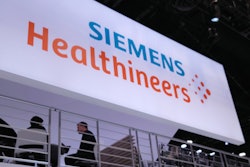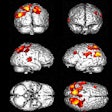Dear Molecular Imaging Insider,
It's not easy to interpret imaging data from PET/CT scans acquired with gallium-68 (Ga-68) prostate-specific membrane antigen (PSMA) in patients with prostate cancer. And intraprostatic lesions are also often missed by visual PET image interpretation due to their small size or configuration.
Enter radiomics, an approach that could eventually help fill this gap, according to a group at Nanjing Medical University in Nanjing, China. The researchers developed a radiomics algorithm that not only differentiated primary prostate cancer tumors from benign prostate disease but also outperformed visual assessments by experienced nuclear medicine physicians. Could it be a game changer? Read about the research in this edition's Insider Exclusive.
For its approved use in detecting metastatic prostate cancer, Ga-68 PSMA PET/CT is already having a significant impact on patient management. One recent study found the approach may save more than 16% of prostate cancer patients from surgery.
This work, as well as other advances in the field, such as the U.S. Food and Drug Administration approval of lutetium-177 PSMA radioligand therapy (Pluvicto, Novartis), appears to be raising interest in clinical work over research among residents pursuing nuclear medicine careers, according to a team in Boston.
In Alzheimer's disease research, we recently highlighted two studies. One represents the challenges the field faces in enrolling diverse patient populations in clinical trials. The other represents hope for patients: A study based on amyloid PET scans revealed that the experimental drug donanemab could clear amyloid plaque brain deposits in patients for up to four years.
In other coverage, we've recently written about several head-to-head studies. In one, PET/CT and PET/MRI were compared for planning surgery in women with endometrial cancer, while another compared two radiotracers used in SPECT/CT for diagnosing metastatic bone tumors in patients with prostate cancer.
Speaking of SPECT, a Brazilian group tackled the question of whether myocardial perfusion imaging (MPI) poses a risk to patients due to radiation. The team used a common lab test to analyze DNA damage in lymphocytes in patients who underwent MPI.
Finally, in global news, nuclear science and medicine experts gathered recently during the International Atomic Energy Agency's (IAEA) 2022 Scientific Forum in Vienna. They discussed improving radiation medicine capabilities in poorer countries as a way to bridge the massive global gap in cancer care.
That's all for now. Be sure to check back regularly for more news in your Molecular Imaging Community!





















